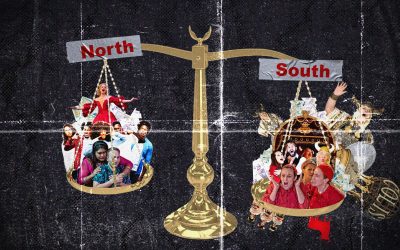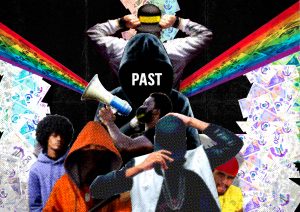Blog
The content from this blog was initially started when I took a career break because I was uncertain that the work I was doing then, on racial equity, was having the deep impact that was needed.
I used the time to start a blog called “Skin in the Game” in which I ‘downloaded’ personal stories and thoughts on race, identity and power, as a means to deepen my thinking and figure out how best to position myself to challenge racial inequity going forward.
The blogging – including on my own experience of poverty – led me to a deeper realisation of how, in a capitalist system, money is a proxy for power and how inequitable distribution of finance is a key driver to all aspects of racial inequality.
Out of this I started Create Equity, to drive more racially equitable funding in the arts, social enterprise and commercial industries; and to help develop sustainable Black founded organisations that are properly skilled and resourced to thrive.
This all happened pre pandemic, pre Black Lives Matter, and pre the cost of living crises and the impending recession. Each of these crises makes my new work more relevant than ever. We need to invest in future-facing enterprises that will create new sustainable jobs, and rebuild our economy while at the same time creating a fairer and more inclusive society. This is about building a fairer and more inclusive system.
Throughout my blog you will find a range of mixed media including audio pieces, videos and written articles. You can also explore the content according to the following categories:
Explore my most recent content
Looking Forward to a Year of Writing and Advocacy
Equitable access to wealth creation is an outcome in itself and the single best way to produce Smith’s robust economy, King’s open democracy and Ansell’s idea of politics that produce more equitable outcomes in education, health, employment, housing and criminal justice.
Where I sit on white middle class activism
I have combined my two latest articles into one place because I think the first gives important...
The arts divided cannot stand
The UK’s growing Black, Asian and minority ethnic population* inevitably means that the racial...
Responses to ACE National Portfolio funding expose systemic racism (article)
It appears Arts Council England (ACE) has achieved a significant improvement in the proportion of...
I don’t hate the Arts Council (article)
Through almost monthly blogs, articles and talks on social media over the last two years, I have...
Cost-of-living crisis: how will it impact diversity in the arts? (article)
A few weeks ago, I read an article on the crisis facing the arts which prompted me to think about...
Campaign for Arts Council England to Fund in a Racially Equitable by 2031 (5 LinkedIn posts)
WHY ARTS COUNCIL ENGLAND MUST MAKE A STEP CHANGE IN ITS FUNDING TO BLACK AND BROWN ORGANISATIONS,...
Is ACE’s diversity strategy – and reporting – fit for purpose? (article)
Reading Arts Council England’s latest Equality, Diversity and Inclusion data report 2020-21, it...
Why levelling up shouldn’t mean levelling down on diversity (article)
How will Arts Council England square the circle of delivering increased funding to regions outside...
What can impact investment contribute to race equity? (article)
Not every business owner in the UK is in the same position today. If you’re a white entrepreneur...
Addressing the Inequity of Funding Decisions (article)
Why we need to build mature partnerships between Black-led organisations and funders. There are...
Money Is Not The Answer For Black Artists And Creative Entrepreneurs (article)
I recently watched Nick Broomfield’s documentary ‘Last Man Standing: Suge Knight and the Murders...
Whose “lived experience” matters most? (article)
There is a new belief that any debate about racial inequality – its causes, impacts and solution -...
We Need To Talk About Race (article)
For the last 12 months I have been publishing regular articles on racial inequities in the arts...
Is racial equity a zero-sum game? (article)
The question of whether increased funding to Black-led organisations necessarily would mean less...














